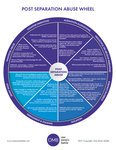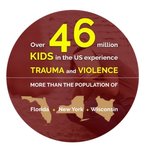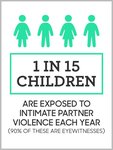






When Starr Jones* tells her story, people can’t believe this is happening in Minnesota.
They can’t believe that the dad was investigated by child protection when their first daughter was an infant for harming her, but ended up with sole legal and physical custody. They can’t believe the girls were taken away when Starr has never laid a hand on either girl, been in alcohol or drug treatment, or served time in jail.
They can’t believe that the courts haven’t factored in the wishes of the girls, who are now teenagers. Their desire to live with their mom has been ignored despite multiple suicidal attempts by both girls, eating disorders, running away from their dad, and confinement to long-term mental treatment facilities alongside depression, anxiety and other signs of abuse and trauma.
They can’t believe that dad would rather send the girls away than let them live with their mom, nor that a family court judge has done the same.
They can’t believe a primary caregiver lost physical and legal custody of her daughters and could only see them during supervised visits.
They can’t believe that dad blames mom for what is happening, and has returned to court multiple times to punish her by restricting contact with her children.
They can’t believe what is happening in family courtrooms, and want to believe that she must have done something wrong to deserve this.
Starr remembers being shocked, too. But now she’s too traumatized to even cry when she tells the story of what happened to her family and how her ex-boyfriend’s accusations of “parental alienation” led to this.
Instead, like many survivors, her voice is flat when she talks about the abuse during her relationship, and the post-separation abuse since.
CPS holds mom responsible for violent dad
Twenty-three-year-old Starr* (whose name along with everyone else’s in this article, as well as other details, have been changed for their protection) was pregnant with their second child and had left their six-month-old daughter Mia with her boyfriend, Todd, while she worked.
She got a phone call from Todd that chilled her to the bone.
“He said if I don’t come home immediately, he was going to kill her,” Starr recalled.
The baby looked ok when she arrived, and she told Todd that she was going to stay somewhere else that night. Once safely out of the apartment, she headed to the emergency room. CPS and the police were called, and Todd admitted to shaking the baby that day. He also said that three months earlier he had held a pillow over her face when he couldn’t control her crying.
Starr made the decision to leave.
But instead of life getting better in 2005, things got worse for Starr, her six-month-old daughter and her unborn baby.
“I was held accountable by Hennepin County for leaving my child with someone unsafe,” explained Starr. “I had to quit my job because there were so many hoops to jump through.”
They took the nursing infant away and placed her in foster care.
And they warned her that her parental rights might be terminated. If they were terminated, not only would she lose Mia, but she would lose her unborn child and any future children.
“What they did was far more damaging to my daughter and I than anything he had done,” said Starr. “The county takes very flippantly the relationships and bonds between family members. They really don’t take into account the damage that does.”
Not once did a social worker suggest that she could get a restraining order against Todd, whose physical violence over the years had included blocking doorways, locking her out of the house in the dead of winter, yelling in her face, and strangling her. They ordered him to attend an anger management class, and Starr made sure he got there because she couldn’t get Mia back until CPS decided Todd was safe – even though they were no longer living together. They required her to admit she had done something wrong by leaving her child with dad – even though she didn’t know he would harm the baby until the day she left.
She finally got Mia back and refused to take Todd back, despite his pleading that they be a family again and that he had changed. Eighteen months after their second daughter, Caroline, was born, he had his third child, a son, with his new wife. Todd faded away for about six years, and only came by to see the girls when Starr reached out.
‘If you take my money, I’ll take your kids’
Then, because she was on medical assistance, the county went after Todd for $50,000 in unpaid child support.
She begged them not to.
“If you take my money, I’m taking your kids,” she remembers him telling her.
His wife called her and “demanded to know why I felt entitled to take his money,” said Starr.
“I couldn’t prove any violence was happening now.”
So family court awarded Todd every other weekend, and the girls started spending overnights with the father they hardly knew in a different house with new rules and two adults who didn’t like their primary caregiver and let the girls know.
“I could do all my laundry and go to a movie in a single day,” Starr recalled. “After putting myself through graduate school as a single mom, it was kinda a relief knowing I had another parent willing to do some of the parenting.”
But then, the girls developed bedwetting issues. Caroline started losing weight because she was so anxious about spending the night away from home at her dad’s house. She dropped from size six to two within three months.
When Starr brought things up to Todd, he insisted that Caroline was ok, and that she ate with him despite her obvious weight loss so the problem had to be with Starr. He refused to talk about ways to help Caroline eat at his house and manage her anxiety, and he told Starr to stop trying to control how he parented.
“That’s when I started saying, ‘What do I do?” remarked Starr.
Her earlier experience with child protection had shown her that she would be held responsible for what happened at dad’s house unless she prevented it, so she filed an order for protection (OFP) on behalf of her and the girls. “My goal was not to remove dad from their lives but to figure this out,” explained Starr. She agreed to drop the OFP with the provision that they meet and address things.
Instead, he showed up expecting 50/50 parenting time and didn’t engage in conversation to address their daughter’s needs.
And then he took her to court.
In the meantime, Starr was focused on getting her daughter to eat enough to hit a healthy weight. The school wasn’t set up to accommodate a child who needed to eat so many extra calories. In December, Starr pulled Caroline from public school to do a hybrid of some classes at school and the rest homeschool through the holidays to focus on eating. Todd refused to agree to the plan, but didn’t offer a better one.
Despite her best efforts, Caroline ended up hospitalized because her heart was being affected by the extreme weight loss, anxiety and psychological abuse the eight-year-old had a hard time articulating.
And Todd filed an emergency order to get custody so he could make legal decisions by himself. In his filing, Todd accused Starr of interfering with the relationship with dad, and used Caroline’s words about why she was anxious as evidence that mom was turning his daughter against him. He said it was a case of Munchhausen by proxy, and that Starr was acting as if their daughter was ill when she wasn’t really sick. He wanted her back in public school immediately, despite her having just begun a two-week hospital stay.
Incredibly to Starr, their family court judge ignored the doctor’s diagnosis and awarded Todd temporary sole custody, with a review by a Guardian Ad Litem.
The day they gave him primary care of the girls is a day burned into Starr’s memory.
‘They make you feel like the crazy one’
“Todd is very good at trying to paint me as an immature and incompetent person,” said Starr. “People don’t question what he says. So many of the things Todd has accused me of he has done some version of himself. I assume that is how he comes up with them.”
Todd said Starr didn’t include him in medical decisions about Caroline, even though he was at the hospital during her stay and was part of meetings with hospital staff who ensured he was included.
He said Starr didn’t make them do their homework and pointed to one weekend when they were behind (neglecting to mention they were catching up from the week they had spent with him).
He said that Starr’s anxiety was rubbing off on the girls, and that they were enmeshed. He accused Starr of being a gatekeeper and blocking his access to their daughters. He told medical professionals that they couldn’t share information with her, misusing his legal custody authority.
It’s hard to keep track of all the contradictory statements made that Starr heard from Todd, his attorney, the judge and the court-appointed Guardian Ad Litem (GAL), and it was tough to figure out how to address all the lies Todd told.
But one thing is clear to Starr. “The GAL was famous Minnesota con-man Denny Hecker’s ex-girlfriend, and she loved Todd. Where does the court find someone like this?”
She questions whether the GAL had training in domestic violence so she could adequately identify common factors in abusive situations. She’s not alone. These and other problems are highlighted in a 2018 Office of the State Auditor report on the Minnesota GAL program.
The techniques Todd used, that of denying, attacking and reversing who is victim and offender, is a common method known as DARVO, studied by various researchers in cases of domestic and sexual violence, but it isn’t required in training to become a GAL. In fact, someone may become a GAL in Minnesota with only 40 hours of training, and is not required to have any training in child psychology, domestic violence, Cluster B personality disorders, or high conflict personalities. Likewise, judges, attorneys and custody evaluators receive very little training in domestic violence although researchers estimate that the majority of divorce cases that go before judges and aren’t settled out of court involve domestic violence, according to the Leadership Council on Abuse and Interpersonal Violence.
“They make you feel like the crazy one because of the crazy things they’re doing,” observed Starr.
Caroline finally started gaining weight after her hospital stay and the doctor’s recommendation that she needed 3,500 calories a day. Despite the fact that she was with mom for all but a few days of her recovery, Todd used it as evidence they were doing better with him, and legal and physical custody and majority of parenting time should stay with him.
It became permanent after the GAL’s recommendation in favor of Todd. Judges are known to rarely go against the recommendation of a GAL or custody evaluator. A study by Georgetown University led by Joan Meiers found that when a mom raises concerns about physical or sexual abuse, and a dad counters with allegations of alienation, the courts side with him and mothers lose custody 43% of the time.
The theory of alienation is widely used in family court, but has been repeatedly debunked by scientists and psychologists, particularly those familiar with the dynamics of intimate partner violence and coercive control who see continued abuse versus “parental alienation” or “enmeshment.”
“I was raising them without him and they were leading charmed healthy lives from orchestra to sports, to performing in school theatre, to family vacations and summer camps. Suddenly years later he gets to show up, make false claims and put me on supervised visits,” said Starr. “You can’t make this up. It’s unbelievable.”
Mission to erase mom
But the switch in houses didn’t fix the girls’ relationship with their dad, and the girls began exhibiting more signs of anxiety and depression as their lives continued to dramatically change. It is hard for Starr to recall all the incidents of the last few years, and how many times they’ve been in court.
Todd began his time as primary parent by moving the girls to the opposite side of the Twin Cities from where they grew up and changing school districts. He removed them from their long-time activities, dropped their music lessons, and enrolled them in martial arts (which he is a fan of).
“He seemed to be on a mission to erase everything about me and my parenting choices,” said Starr.
Also known as “counter parenting,” these tactics are outlined in the Post-Separation Abuse Wheel developed by Tina Swithin of One Mom’s Battle. They are common ways people continue to abuse their former partners after separation as their access is limited to the children.
Todd’s next wife, who was a competitive woman with no kids of her own, began introducing the girls as her children. She said she was their mom while at school functions and medical appointments. She supported his “fight” for parental rights and managed the daily care of the girls despite knowing their mom was capable and willing.
Caught in a trap
At 12, Caroline’s anxiety-induced weight loss shifted to anorexia, and she was placed in the residential treatment program. When she got out, her dad continued to make comments about her weight and that she “was going to get fat if she ate that.”
Mia tried to commit suicide at school. The school released her with the explicit understanding that Todd would bring her directly to the emergency room. Instead, he took her out to dinner before making his way to the hospital. The University of Minnesota psychiatrist Mia saw wrote a letter to CPS stating that she needed to be removed from her father’s care immediately because she identified him as the source of her distress, and he believed her when she said she was being abused by her dad.
Starr filed an ex parte motion based on the doctor’s findings. But once again, she discovered she was caught in a trap. “Everything you say and do and the kids say or do is more evidence of parental alienation, and not dad’s bad behavior,” she pointed out.
Another time both girls showed up for a visit and admitted that, without knowing what the other was doing, they had both overdosed on pills the night before at their dad’s. They needed immediate medical attention. Later, Starr learned Caroline’s psychiatrist had called Todd the day before after an appointment with Caroline, and told him he needed to bring both girls to the ER immediately. She relayed that Caroline had a plan and intended to hurt herself. In her notes, she wrote that Todd agreed to bring them in. Instead, the next day he told Starr they were sick and it might be food poisoning.
There were many follow-up suicidal attempts by Caroline, who said if returning to her dad’s house was the only option, suicide was the only way out.
“That period of time was really scary,” said Starr.
Todd convinced the court that her daughters were compelled to hurt themselves to be loved by mom. “Why would my kids have to hurt themselves in order to prove their love to me?” Starr asked. She was astonished by the allegation, but has discovered that judges and referees in family court have broad discretion in their cases, which are shielded from public eye. Without pointing to evidence, they can rule that a witness is credible or not, and make their decision based on that. Sometimes contrary evidence has been presented disproving the allegations, but this effort by moms is seen as overly aggressive and the evidence gets ignored.
“Their exercise of discretion is so biased,” she observed after more than a decade in the family court system, “and they don’t have to weigh all the evidence like you do in criminal court. There is no sunlight on these cases.”
She believes that a court bias against women is apparent, even in the language used. Todd “informs the court” while Starr “alleges and claims.”
Few judges are held accountable in the state for misconduct. The Minnesota Board on Judicial Standards is staffed by fellow judges and attorneys, and has issued only four reprimands in the last five years. There are 289 judges in the state and many referees. The Board received 158 complaints in 2020 and issued only one public reprimand. In 2019, the board received 181 complaints and did not issue a single public reprimand.
Starr has by turns hired an attorney and represented herself, and has spent $300,000 on a legal battle she calls “frivolous.” It could have been resolved by Todd taking steps towards getting to know his children better, such as attending soccer games and recitals, and growing from there.
“When you deal with domestic violence and get away, you think that part is going to end,” observed Starr. “But then they weaponize the court system to continue that abuse. And when it is psychological abuse and coercive control, the court is the perfect weapon for them.”
Supervised like a rapist
Starr remembers one day when she got a phone call from Mia. “She told me she was more scared than she had ever been in her life,” recalled Starr, who felt helpless and shocked. “She begged me to come and get her. I told her I cannot come and get you. I have no legal right.”
So, Mia called the police. When they arrived, Todd and his mother-in-law told officers that Mia was just being a difficult teenager.
And then they used it in court to say that Starr was even trying to alienate the girls from their grandmother and was responsible for the police visit. “I was not involved in this,” pointed out Starr. “I had no idea where she was.” But it didn’t seem to matter. Again, if she did something, it was inappropriate. If dad did it, it was somehow her fault, too. “Court is his arena,” observed Starr.
“The court kept getting the message that I was relentlessly doing behaviors that were unacceptable because Todd was relentlessly manufacturing accusations,” Starr pointed out. And there was no proof. But the court got fed up with it, and issued a sua sponte order that no one had asked for.
The judge ordered supervised visits for her at the highest level available in Minnesota.
She was only allowed to see her daughters at a supervision site typically reserved for those who rape their children but get to see them after they’ve served their prison time.
She got to see her kids for one hour a week. They were so booked up, she couldn’t see them at all for four months.
And she had to pay for all of the supervision costs.
“I don’t want anyone to try to imagine how this feels because no parent should have to imagine it,” said Starr.
Starr finds it confusing that the court still thinks she is the problem parent. Todd has a poor co-parenting relationship with the mother of his third child. Meanwhile, Starr co-parents easily with the father of her third daughter although they are no longer a couple, and they haven’t involved the court at all but collaborate on what’s best for their children.
She had a psychological evaluation done, which showed little more than a hesitation to trust people. It ruled out Munchhausen by proxy. She was ordered to complete DBT therapy anyway, and she graduated out of it in half the typical timeframe. Meanwhile, Todd’s results showed he’s likely to blame Starr for his parenting challenges, and lacks attunement to meet the needs of the girls. He hasn’t completed any therapy to address those issues.
“If a dad rapes a daughter during his parenting time with her, and she tells her mom what happened, what is mom supposed to do? If she does nothing she is neglecting her responsibilities as a parent, but if efforts to protect the child are made, the child is taken from her and given to the dad. When a divorced mom comes forward, she is accused of telling the daughter to say that to alienate her from dad,” said Starr. “I’d like the court to tell us how to manage this.”
Countdown to 18
Eventually, dad placed both teens in separate, long-term locked psych facilities although that level of care wasn’t recommended by their psychiatrists. Todd refused to sign releases for Starr’s involvement even though she was legally allowed to be included. Despite the lack of a court order supporting that, staff followed Todd’s directions.
Starr believes that family court is a misogynist system that favors fathers. “Just do what the man wants when he wants it” is the message she’s gotten, versus one that puts the safety and well-being of the children as priority.
The system has not given the children a voice, or listened when they’re talked about their dad’s physical aggression and the coercive control he’s demonstrated. “They have sexual rights in Minnesota, but they don’t have the right to come home,” said Starr.
Mia spent nine months in treatment and then returned to her dad’s for a short time before leaving again. She spent nine days at a homeless shelter. She’s now staying with her godparents as she completes her junior year.
She recently got an harassment restraining order against her dad (that he is fighting) because he kept reporting her missing and having police hunt her down. She also witnessed him abuse his teenage son and saw ongoing neglect of his now one-year-old baby, Grace. She’s worried about how his inability to cope with a baby crying has continued.
Caroline was in treatment for over a year. Once she got out, her step-mom picked her up and dropped her off at a homeless shelter because she refused to return to her dad’s house. She moved from couch to couch, and landed with a grandparent who helped enroll her back in school where she’s a sophomore now.
Both girls remain officially “homeless and highly mobile youth.” They live in fear every day that he could cause more problems in court and try to force them back. They continue to deal with a lot of anxiety.
When interviewed separately Mia didn’t feel ready to share her experience out of fear. “I just wish he hadn’t ruined my childhood,” she said.
They’re all counting down the days until they turn 18 and can move back in with mom.
Read more in our Voices Against Violence series here.
• "I RAN'
• She must have done something wrong
• Assume mothers get custody of the kids in domestic abuse situations? Think again.
Comments
No comments on this item Please log in to comment by clicking here